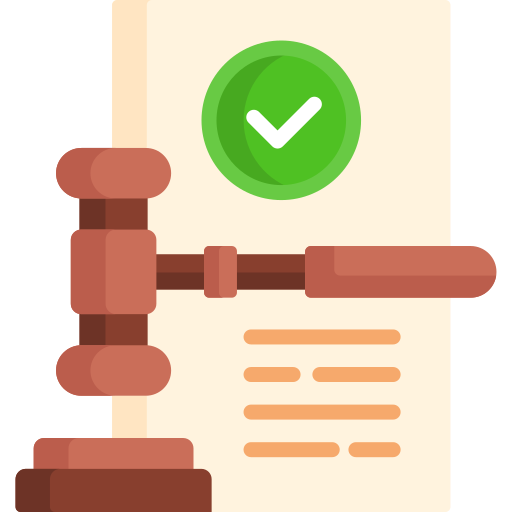Software Patents
Introduction

Software patents are a controversial topic in the industry. They are intended to protect the intellectual property of software developers, but they are often used to stifle competition through aggressive litigation.
In principle, when you apply for a patent, your application should be reviewed by an expert in the field. They check that it doesn't violate other patents and is relevant. If your patent is granted, you have the exclusive right to use that technology for a set period, usually 20 years. Unfortunately, the patent office is often understaffed and underfunded, so many patents are issued that should not have been. They might be too broad, or not novel, or just not relevant.
Software patents get issues for all sorts of things. Here are some example patents issued in the last few years:
- Automated determination of booking availability for accommodation listings - AirBnB
- Dynamic mask application - Instagram
- Varifocal display with actuated reflectors - Google
- Head mounted display calibration with direct geometric modeling - Google
Wether these patents are valid or not is often a matter for the courts to decide.
Most software patents are just fine and fulfill their intended goal of protecting a company's, or individual's, intellectual property. However, when they are used aggressively, they can be a problem.
Software Patent problems
There are two main cases where software patents become a problem. If they are issued for too broad an invention or when not owned by the creating company.
For example, Apple tried to patent the rectangular shape of the iPhone, and Amazon patented one-click buying. In the case of Amazon, they were able to sue Barnes and Noble for using a similar system. These sorts of overly broad patents are often used aggressively to stifle competition.
Patent Trolls
A Patent Troll is a company that buys patents from other companies and then uses them to sue other companies. They don't use the patents themselves or develop any products. They just sue other companies for using the patented technology.
Patents are often acquired from companies that have gone bankrupt. These companies only revenue comes from legal fees and settlements. They often target small companies that can't afford to fight a lawsuit.
This use of patents is never good for the industry. It only stifles innovation and competition without contributing anything. Unfortunately, it is a common practice and something that the current patent system allows.
Patent Lawsuits
Patent lawsuits can be time consuming and expensive. They are also risky for both parties. If the patent owner wins, the other company may need to completely redesign or even scrap a project. If the other company wins, the patent is likely to be declared invalid and can never be used to sue anyone again.
Most patent lawsuits are settled out of court to avoid costly legal fees. The outcome of a court case is rarely beneficial for the companies involved. This often means that aggressive patent owners can use the threat of a lawsuit to force settlements from smaller companies, or even force them out of business.
Should you get a patent?
Filing a patent can be expensive and time consuming. It can take years to get a patent issued and cost tens of thousands of dollars. If you are a small company, it may not be worth the cost. As an individual developer, it is unlikely that you will be able to afford the legal fees to enforce a patent. Filing a patent also requires you to disclose your invention to the public. This means that if you can't defend your patent, you may have just given your competitors a roadmap to your technology.
Large companies on the other hand often have a massive patent portfolio that they want to grow. They often offer significant bonuses to employees who file patents, and have teams of lawyers to enforce them. They value patents as a defensive measure to protect their intellectual property and have the resources to defend them in court.

Defensive Patent Use
Even for companies who do not intend to enforce their patents, having a large patent portfolio can be useful as a defensive measure. When a company is sued for patent infringement, they can often countersue the other company for infringing their patents. This can lead to a cross-licensing agreement where both companies agree not to sue each other and continue to use each other's technology.
Conclusion
Software patents are a complex issue. They can be useful for protecting intellectual property, but they can also be used aggressively to stifle competition. If you are a small company or individual developer, it may not be worth the cost to file a patent. Large companies often use patents as a defensive measure, but they can also be used aggressively to force settlements from smaller companies.